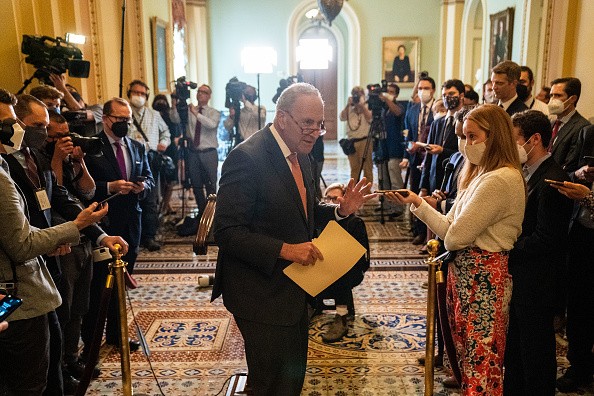The Senate resolved a political standoff over the nation's debt limit that threatened to roil global financial markets on Thursday night, agreeing to a temporary extension that foreshadows a new confrontation in early December.

Senate Approves the Two-Month Extension
In a recently published article in MSN News, the two-month extension was approved by the Democratic-led Senate on a 50-48 vote. Some Republican senators joined Democrats in breaking a filibuster, enabling the measure to reach the floor and pass with a simple majority.
The Senate impasse was the most significant roadblock to avoiding a default, which experts say would devastate the global economy. The House, which will be out of session next week, must still approve the bill before the United States Treasury defaults on October 18.
Democrats voted to increase the country's borrowing limit by $480 billion while Republicans voted no. Despite President Biden's repeated warnings this week that inactivity threatened to plunge the nation into a new recession, the gap remained, according to a report published in The Washington Post.
Read Also : Biden Slams Republicans Over Opposition Debt Ceiling Negotiations, Warns US Could Default as a Result
Biden To Sign the Extension If It Reaches His Desk
Members of the House of Representatives may be summoned early for a vote, according to Speaker Nancy Pelosi. President Joe Biden has said that if one reaches his desk, he will sign it. When Congress passes legislation to increase the debt ceiling, White House spokeswoman Karine Jean-Pierre said Thursday that the president looks forward to signing it.
Meanwhile, Biden has been pressuring Congress to act in recent days, criticizing Republicans for blocking a long-term rise in the borrowing limit while huddling with business leaders around the country to make a case for quick action, according to a published article in USA Today.
Furthermore, according to Treasury officials and analysts, if the US defaults on its debt for the first time, the consequences may result in a worldwide recession. 401(k)s and other assets would suffer if the stock market fell. In 2013, a debt limit impasse cost the economy 1 percent of its GDP.
McConnell Offers Extension Until December
The blockage was spearheaded by McConnell as part of the GOP's larger campaign against Biden's spending plan, which includes a still-forming package of up to $3.5 trillion in expenditures that GOP legislators reject fiercely. Late Wednesday, though, McConnell backed down, giving Democrats a two-month respite.
In a published article in The New York Times, Republicans eventually gave Democrats the 10 votes they needed to end discussion the next day, but GOP legislators shortly after voted against raising the debt limit itself. Some Republicans let the bill pass despite former President Donald Trump's last-minute effort to torpedo it. Trump released a statement just before the vote blasting McConnell.
Senate Majority Leader Charles E. Schumer (D-N.Y.), with a short-term solution in hand, praised the development on the Senate floor late Thursday as a crucial step toward averting a first-ever, Republican-manufactured national debt default.
Meanwhile, McConnell said on Thursday that he still wants the measure to be passed via reconciliation. He said that because of the short-term extension, legislators would have "no doubt" that they would have enough time to address the debt limit via that process. Senate Democrats indicated on Wednesday that they would not budge on McConnell's demand in December.








